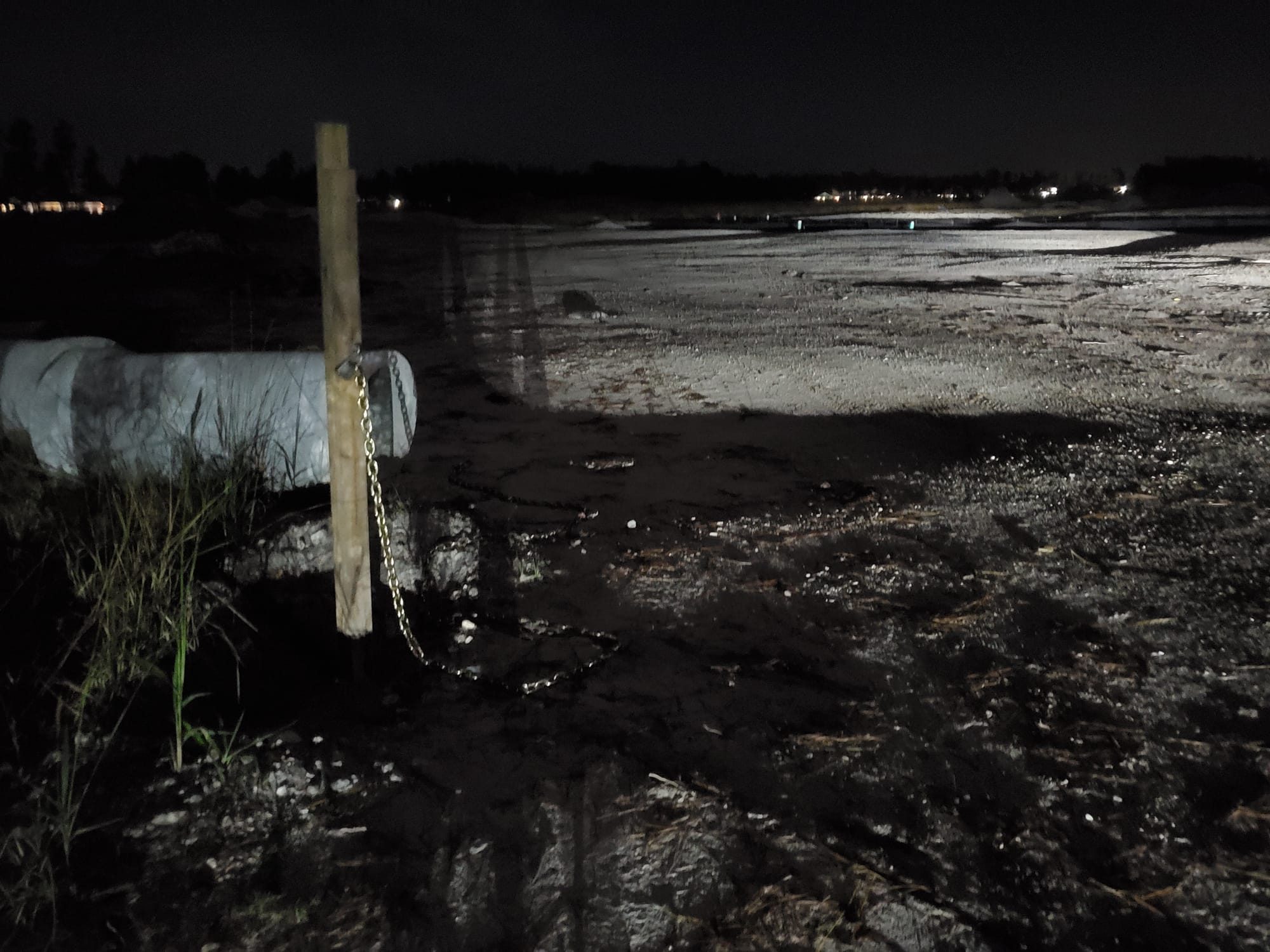Mission Statement
To Ensure a Fair and Equitable Transition of the HOA from the Builder to the Homeowners, we invite ALL residents to participate in the Process
The 2025 FS Community Voices Residents Town Hall Meeting
PowerPoint presentation
can be downloaded from the
"File Manager" header
Click
PowerPoint presentation
can be downloaded from the
"File Manager" header
Click
FS Community Voices New Feature:
IATeam Community Hotline – 843.608.9411
IATeam Community Hotline – 843.608.9411
The IATeam has established a 24/7 telephone hotline for messages concerning Common Areas, Amenities, Bridges, Streets and Sidewalks, Landscape Plantings and Waterways. This would include anything that is not contained within your lot and home. Over the past three years, efforts have been made to identify all issues requiring the attention of K.Hovnanian® and its community manager, Associa.
During interactions with many Four Seasons residents, the IATeam has been confronted with a number of reports of system failures and concerns that had not previously been documented or known to us. This added resource will allow us to expand our research and include many more unique problems that otherwise might escape our scrutiny.
Operating as volunteers, the IATeam aims to organize and schedule investigations to allow adequate time for researching each identified issue. Input submitted through the hotline will assist us greatly in unearthing and addressing these matters. Responses will be managed based on available resources and the teams' personal time constraints.
Residents are encouraged to provide feedback as the community moves toward transitioning from a KHOV-managed HOA to one operated by and for all Four Seasons residents.
During interactions with many Four Seasons residents, the IATeam has been confronted with a number of reports of system failures and concerns that had not previously been documented or known to us. This added resource will allow us to expand our research and include many more unique problems that otherwise might escape our scrutiny.
Operating as volunteers, the IATeam aims to organize and schedule investigations to allow adequate time for researching each identified issue. Input submitted through the hotline will assist us greatly in unearthing and addressing these matters. Responses will be managed based on available resources and the teams' personal time constraints.
Residents are encouraged to provide feedback as the community moves toward transitioning from a KHOV-managed HOA to one operated by and for all Four Seasons residents.
Contact Us-Informed Neighbor-Stronger Community
- Summerville, South Carolina, United States
If you would like to receive community updates or share concerns and issues related to OUR neighborhood, please complete the form below. Also, you can enter comments and questions on the message field.
Scoop From the Community

An IATeam Update, Meeting with Community Manager - Part One:
On Monday, November 3rd, members of the IATeam met with K. Hovnanian®/ Associa’s community manager (Manager) to discuss various issues that had been recently brought to our attention.
At the beginning, the Manager raised concern about the activities of FS Community Voices (FSCV). She stated that a number of residents who regularly share the commentary and articles presented here on our Resident Only Facebook page, had expressed their feelings that the FSCV is an organization with a hateful message and seeks to divide the community. I reassured the Manager that this is far from our agenda and clarified why we even exist.
For the majority of those residents who have or continue to participate in the FSCV mission, we do so as concerned residents who have found issues that have the potential for financial implications for all once K. Hovnanian® transitions the ownership of community assets to the residents.
For each of us who have volunteered hundreds of hours to research and catalogue incomplete and defective construction work, work done out of specification and even items completely ignored such as the missing root barriers currently being addressed through our efforts with Berkeley County, we do so out of concern that we will have a well-constructed and maintained community that performs as designed and advertised.
Our mission which is clearly stated in our banner at the top of both our website and Facebook page declares, we exist “to ensure a fair and equitable transition of the HOA from Builder to the Homeowners”. That’s it! For those who have difficulty accepting our mission, please keep an open mind as we continue to represent the best interests of all who reside here.
The Team reiterated that had K. Hovnanian® or its ownership controlled HOA Board of Directors been responsive regarding significant issues brought to its attention along the way rather than ignoring these inquiries or concerns, it would have been very unlikely that FSCV would even exist.
To that end, the IATeam once again expressed its willingness to meet with management and begin a long overdue dialogue that could be very productive in addressing the plethora of poorly performing and in some cases dangerous conditions that exist within the community. The Manager assured us that she would once again bring up our request at this coming Thursday’s Board of Directors meeting.
Please watch for Part Two of our meeting with the Manager which will be posted later this week. It will cover a discussion regarding a number of recent slips and falls that have taken place within Phases 6, 7 and 8 and what was promised to remediate the dangers. We will also present newly discovered information that has cost implications being paid for from our HOA fees. Stay tuned.
******************************
10/30/2025
Go to “Infrastructure & Assessment” page and see Tim Trayner’s Person to Person email dated Oct. 17, 2025 to Berkeley County Director of Planning & Zoning
******************************
10/21/2025
In response to a question posed by a resident, Denise Matthews:
“Tim,
Thank you. My observation and question...
As a fairly new resident of Four Seasons, I don't have a complete history of the builder’s repeated purchase of adjoining land with intent of additional home construction within our FS community beyond what was originally presented at our time of purchase.
Do we as residents have legal rights or recourse regarding this expansion, particularly since the added homes will surely place additional strain, maintenance and financial burden on home owners for amenities designed to accommodate a specific number?
Is it your opinion or understanding we should consult with legal counsel or county planning authorities to better understand the developer’s rights vs. ours as homeowners in consideration of Khov's less than transparent actions?
It seems we've been unable to enjoin many to any great degree.”
Denise Matthews
Tim Traynor’s Response (Infrastructure Assessment Team - IATeam):
“Denise... thank you for the question. I am not an attorney, but the research done by our various FSCV teams has revealed the following. There is no recourse over the declarant, in this case KHOV, when it comes to their actions. The applicable CCR’s clearly state that they can make up the rules anytime they choose until they have transitioned control over to the homeowners.
South Carolina is woefully weak when it comes to homeowner’s rights prior to this event and we only have an omnibus or information officer at the State level who records our objections or concerns. This adjunct has no authority to compel a fair or balanced resolution for actions taken by the declarant under the State statutes.
Having said that, there is one opportunity we as non-voting members of the developer/ builder’s-controlled HOA will have and that will be at the time we negotiate our transition of control from KHOV’s ownership and obligations of the common amenities and land that we will inherit. This is why our small group of residents formed FSCV and have been collecting data over these past years to bring forth any deficiencies in KHOV’s implementation of its permitted responsibilities.
To date, we have uncovered numerous areas of concern and have requested that KHOV address them prior to transition. Their response has not been encouraging, quite the opposite. There has been a pretty well-defined reaction by ownership and its managers that have involved intimidation both physical and legal, a confluence of misdirection, and a general lack of transparency when confronted with the facts on the ground.
I point to a recent example of a response to a question posed to KHOV’s Board of Director’s at last year’s annual meeting. Mr. Steven Baker, its land manager, told the community in attendance that KHOV was not obligated to install the root barriers required by Berkeley County’s Streetscape ordinance. When Mr. Baker was asked to further explain his claim, he shut down communication and told the resident he would no longer speak with him. He walked away mumbling that he had a family affair to attend limiting his time.
However, he did not leave the ballroom for some time after making this statement nor has he responded to numerous email asking for a follow-up.
This led to the Infrastructure Assessment Team (IATeam), residents tasked with researching such erroneous claims, to act. Berkeley County’s Planning Department was contacted and agreed with the IATeam that KHOV must install the root barriers along with several hundred missing streetscape trees prior to it being granted a final occupancy certificates for Phases 6 through 10.
For those living in Phases 6, 7 and 8, you are witnessing the results of that requirement as KHOV attempts to comply. To understand what type of financial exposure the residents might inherit over time, The IATeam did a preliminary estimate and it was their opinion that this expense if left unattended could cost residents in excess of $1,000,000.
Another note that raises concern is that by KHOV’s own admission, they did not comply with these Berkeley County requirements in Phases 1 through 5. This will be a topic to be brought forward at time of transition.”
Tim
******************************
5/3/2025
GET INVOLVED IN YOUR OWN WAY
Hello Fellow Homeowners...
As we move steadily toward the transition to a resident-owned community, it is essential that each of us take the time, in our own capacity, to identify and document any areas that require correction or remediation.
Please remember that our focus is on infrastructure and common areas—specifically, as well as any concerns outside of individual homes and personal property lines. These may include, but are not limited to, raised sidewalks, misaligned manhole covers, drainage issues, or any other elements that appear out of place or not in compliance with expected standards.
Community Voices will serve as the central repository for this information. We will compile and regularly update a comprehensive report that will be submitted to Associa. This ensures that KHOV is made fully aware of the necessary corrections and can address these deficiencies before the official transition takes place.
To report any concerns or observations, please send detailed information, including location and description, to fscommunityvoices@gmail.com
It is in the community’s best interest to ensure that any deficiencies are addressed by the builder now, thereby reducing potential financial responsibilities for residents in the future.
Although we still have time before the transition, staying proactive will help ensure that Four Seasons remains a well-maintained and desirable place to live for all current and future residents.
Thank you on behalf of the community,
Harvey Drill
****************************
Note from the WEBMASTER:
Information under the header Scoop From the Community will be move to the appropriate content header or remove after a few weeks.
INFRASTRUCTURE AND ASSESSMENT
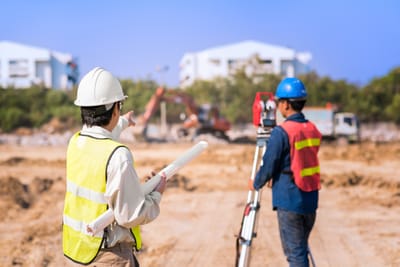
It is our intention to collect communitywide information regarding the various amenities and common public improvements, listed or not identified in the reserve study compiled by Giles Flythe Engineers. This will include, but not limited to, tennis courts, boat launch, dog park, Lake House, pools, landscaping, roadways, and stormwater conveyance systems.
Note: It is a common practice by HOA’s to update reserve studies every three to five years. The controlling factors for more frequent reviews would be years of dramatic increases in projected inflation, poor useful life performance of items listed in the study, inadequate or non-existing maintenance procedures and a significant increase in projected size of original development. We believe all these factors are present in our situation and impact the amount of money that should be held in the Reserve Fund. In this light, we will conduct an overall assessment of the current reserve study then recommend where the Fund should be adjusted.
Tim Traynor
John Battaglia
****************************
October 17, 2025
Below was a Person to Person email between Tim Traynor (IAT Team) and Alison Simmons (Berkeley County Dir. of Planning & Zoning)
“Good morning Alison,
I hope my note reaches you well and enjoying the gift of content happiness that our good Lord has granted us both. I wanted to ask you if my information has been helpful in peeling back the various issues I have brought about in our community's effort to get fair treatment from KHOV. I have tried to give you specific things of substance that would assist you in the enforcement of the "rules of the game" so to speak. By now, I know that you understand why we have raised the alarm on many issues that have slipped under the County's radar.
Four Seasons is a community of folks that averages in their middle sixties to lower seventies who moved into Berkeley County to enjoy the last chapter in some pretty interesting lives. For example, I live next door to the 1980’s former Clemson football line coach Larry Vanderhaven, who along with his sweet wife Lois, enjoy exchanging tales with Anise and I of their past life often in a quixotic way. They are one of the reasons I committed to getting the developer to follow through on their obligation to leave us with a community that will have an enduring ability to perform as designed and hold its economic value for them, their heirs and those that come after.
What many of us here have discovered is that the establishment of the 2006 Master Development Plan relied heavily upon the basic construct that it would bring forth an idyllic and functional place of residence that celebrated the natural beauty and potential of Berkeley County. Although that goal may still exist, the results, at least for the Four Seasons’ community, have left some wanting.
Think of us as a bunch of happy grandparents who hand out hard candy that has been bouncing around in the bottom of their oversized purses for the past ten years just wanting to find a kid without the watchful eyes and quick intervention of parents who are deeply in debt to an orthodontist.
Pickleball and line dancing are two of the most athletic engagements that we can still get our creaking bones to respond to. With few exceptions, we are an interesting band of non-violent curmudgeons just trying to make it to the Promised Land before they close it down.
But I am sure your parents would agree, as a class we do not like to be taken advantage of, especially if one thinks they can get away with it because we are stupid. We are far from stupid… perhaps a little slow to catch on, but we eventually get it. What has taken place within our community has been, for most, a slow realization that the guardrails that should be in place to hold our developer accountable were not very well defined back in 2006 to the detriment of those who purchased the advertised product.
We have discovered, post-sale, that our roads are deteriorating, the stormwater drainage does not function as designed, our streetscape trees struggle and often fail because the preparation one should expect was not followed, and the list of these shortcomings continues to grow like mushrooms in a dark room.
Thankfully, we are blessed with the intelligence and kindness of you and your staff, to help at every turn. Without your fortitude, this would have been a lopsided outcome as predictable as David without his slingshot. This latest revelation of the streetscape debacle has encouraged me and my small team of retired experts to dig deeper, literally in some cases, to uncover all of those bloopers, mistakes, gaffes, bungles whether unintentional or premeditated by a combined developer, builder, engineering firm, contractors, and supervision team.
Our time here on earth might be limited but we will spend it wisely on such matters to the benefit of our community. I know that our combined resident population has expressed their gratitude for letting them know of the defects we have discovered so that we can negotiate a fair and equitable outcome before the KHOV group leaves us.
We are all hopeful that the County will enforce its authority and require KHOV to follow the Streetscape ordinance as it was written and approved in the Master Development Plan of 2006. What is currently in place makes a mockery of both intent and the governance that requires the ordinance to be constructed per its guidelines. We all realize that there may be the need to make some exceptions but hope that in those areas where the ordinance can be implemented without concession, the County will fully enforce it.
The IATeam will conclude its survey of the entirety of Phases 6, 7 and 8 over the weekend. You should receive a spreadsheet that cites each violation of the approved Berkeley County Streetscape Ordinance on an address-by-address listing. This information should make the time your staff has to spend pointing out these violations to KHOV and its consultants to a minimum. I would also ask that you require that KHOV install the root barriers at this time in Phases 9 and 10 before they begin requesting exceptions because of their failure to properly sequence and construct these appurtenances in a timely sensitive manner.
Thanks again for all of your efforts to enforce the often-weaker version of current Planning requirements versus those established by another administration. This cannot be an easy task for you and your staff.”
TimTim Traynor, UPS, DDT and OY
Infrastructure & Assessment Team Leader
FS Community Voices
*****************************
4/8/2025
Great News from Tim Traynor, Infrastructure Assessment Team Leader
Below is the email sent by Tim Traynor to Jack McSweeney, Steven Baker, and Krista Dorris on April 6, 2025.
Good morning friends,
I am writing to you this morning to express my gratitude for the recent agreement that KHOV struck with the Berkeley County Planning Department regarding your willingness to fully comply with the Cane Bay PD-MU requirements for Streetscape Trees and construction of other appurtenances going forward in Phases 6 through 10.
At the last Annual Board meeting, I was rather surprised to hear Steven Baker state that he would not be complying with the Cane Bay PD-MU requirements as described typically on Sheet LS2.1 of the Thomas and Hutton plans. He stated that KHOV was not bound by these requirements as Four Seasons at Lakes of Cane Bay was a “private community”. I was certain that this was not the case and wished to continue the conversation with Steven Baker for clarification but unfortunately, he told me that he would not talk with me again. Of course the only option left to me would be to contact Berkeley County Planning alerting them of your intentions to disregard its obligations.
It is important to note that there are numerous steps to be taken prior to and during the planting of the Streetscape Trees, none of which were performed during the earlier failed attempts at planting and replanting of Streetscape Trees in Phases 6 and 7.
Aside from planting trees that were not part of the approved planting list, some which failed to meet the specimen dimensional and formation requirements, I found the following shortcomings that you will need to correct:
· Proper staking and layout of the trees as per Street Tree Planting Note #6 (Previous attempts by your landscape contractor allowed for its workers to simply use footfall measurements… hardly accurate)
· Performing 24-hour percolation tests observed and certified by the landscape architect as required in Street Tree Planting Note #7
· Mitigating failed soil tests through proper rendering and soil amendments as per Street Tree Planting Note #8 and general notes on LS2.1
· Removing the burlap/ strapping from top 1/3 of root ball Street Tree Planting Note #15 - 18
· Guy all trees properly per Street Tree Planting Note #19
· Maintain proper spacing of plantings with a special consideration of driveways as designated in 5.1.a. through e.
· Installation of root barriers as required in 5.1.f. & g.
These are only a few of the failed installation requirements done previously by your contractor, and landscape architects prior to the issuance of this memo. When I observed the earlier planting, I noted that the landscape contractor did not have a copy of LS2.1 or any other relevant plans and specifications to guide him which meant that he had no idea as to what the requirements were. It occurred to me that perhaps you don’t have the proper documents. I should think that you would be able to secure them directly from Thomas and Hutton, that is if they make an exception regarding their copyright rules.
Please be advised that the IATeam will be monitoring all of the work going forward and issuing reports to Berkeley County Planning daily on any deviations from the requirements. Of course, my offer to work directly with you and your representatives still stands. As stated numerous times, the homeowners are only interested in making sure that the work is performed in full compliance with the permitted plans and specifications. I look forward to hearing from you at your earliest convenience in this regard.
*****************************
3/20/2025
Did you know?
Your Community Voices Finance Team found a significant, non-disputable mistake in the 2024 Reserve Study approved by the HOA Finance Committee and Board of Directors.
The Reserve Study starting reserve balance at 8/31/24 was overstated by $544k or 35%. By the end of 2024, the discrepancy grows to $596k or 36%. We questioned the discrepancy in the annual Q & A’s and successfully got the HOA to acknowledge the mistake.
As a result, the Reserve Study will be corrected and re-posted on Town Square.
Why does this matter?
The Reserve Study states the reserve balances were used to create the reserve funding plan. Inaccurate reserve balances could lead to the need for future capital calls on our residents.
We appreciate the HOA’s willingness to admit to the mistake and agreement to correct the Reserve Study. We will review the 2024 reserve balances in the revised Reserve Study for accuracy on behalf of our residents.
Contributor:
Cynthia Rice - Homeowner
John Lisee - Homeowner
*****************************
1/22/2025
Preamble
Four Seasons of the Lakes of Cane Bay is a 55+ retirement community with great amenities and friendly residents. Many appreciate the management of events and classes. While the community offers excellent opportunities, long-term residents have noticed a decline in addressing issues regarding the upkeep and care of the community by the Association that affect their quality of life.
We anticipated that this new, more comprehensive Reserve Study, conducted five years after the initial study, would provide an objective assessment of our situation. In many respects, this has proven to be accurate. However, there are multiple issues that necessitate thoughtful and transparent responses from KHOV and its HOA.
The following questions stem from our collective experiences and a perceived lack of transparency from KHOV, its Board of Directors, and its management entity, Associa.
These inquiries have answers that should be readily available to the community and its customers following some research. This process incurs costs for the developer or builder, due in part to the necessity of having responsible parties such as site contractors, past managers, and County representatives inspect and verify the completed work.
The intent of our questions is to ensure strict adherence to approved plans and specifications during the design, construction, and execution phases. If these standards are met, the transition from KHOV to the community will be seamless and positive, as it should be. Ultimately, we aim to enjoy the community promised to us, executed and managed efficiently.
In this context, we present these observations, legitimate and well-researched questions, along with the concerns of the residents, with the expectation that our community aligns with the standards established by the Founder of K. Hovnanian® Homes, Mr. Kevork Hovnanian.
Prepared by:
Tim Traynor - Homeowner
John Battaglia - Homeowner
Scroll down or go to File Manager to view and/or download the questions submitted by friends and neighbors living in our Community for the 2025 Annual Town Hall.
Note: there are three 2025 Annual Meeting Question documents.
1. General/Administration
2. Budget/Reserve Study – Finance
3. Reserve Study – Infrastructure
*****************************
From the Infrastructure and Assessment Group
11/23/2023
As part of the Infrastructure and Assessment Group’s research, I would like to ask you, our friends, and neighbors, to monitor and report any flooding or standing water that you witness over the next year. This would include your residential property as well as the streets and common areas throughout our community. Photographs and/or videos are most helpful along with an address or specific location, date, and time of day, as well as a brief description for each incident. Indicating how long these conditions lasted would be a great help as well in determining a recommended course of action.
I have received photos and videos from several residents illustrating flooding conditions and standing water. One particularly troublesome area noted has been the 10-foot space separating our homes which often fills with water because of poor soil drainage and improper pitch. I personally have witnessed this and other areas where these conditions exist leading to overall concern.
To remind everyone, we are collecting this information to encourage the developer to make the necessary modifications or repairs to the community prior to the transition from developer-controlled HOA to property owner’s control. This effort is intended to minimize any costs to homeowners for defects, missing or incomplete work before we assume the responsibility to maintain our community. From time to time, we will add to this list to include other items of concern. Stay tuned for updates and reports of our findings in the coming weeks.
Please send your observations and attachments to FSCommunityVoices@gmail.com
Thank you,
Tim Traynor
IAT Team Leader
FINANCE

KHOV currently controls all financials for the Homeowner’s Association and won’t relinquish control of the Association until all the homes are nearly sold.
The Finance volunteers review the monthly Homeowner’s financial statements issued by Associa on Town Square. This includes the recent issuance of a letter (see below) coordinated by John Lisée to KHOV/Associa Finance Board covering the Team’s review of financial statements with detailed questions relating to their review. KHOV’s 2023 budget included approximately $2 million of Operating expenses and $183,000 of planned reserve fundings as laid out in a Full Reserve study.
In addition, the Finance volunteers reviewed the Full Reserve study dated January 21, 2020 and the impact and relationship of it to the financial reserve transactions on the Homeowner’s financial statements. Our HOA dues will eventually pay for ongoing operating expenses of Four Seasons as well as fundings into a reserve fund which are projected to meet anticipated expenditures for the community over a 20 year period.
The Full Reserve study needs to be updated soon with new estimates for future capital repair and replacement costs (and probably higher) and new site improvements including all streets completed after the January 2020 study. The total projected cost of future capital repair expenditures in the initial Full Reserve study totaled over $7.6 million.
********************************************
What are OPERATIONAL FUNDS & RESERVED FUNDS?
Great question — this is an important distinction in HOA (Homeowners Association) finances. Here’s a clear breakdown:
🏦 Operational (Operating) Funds
Purpose:
Used for the day-to-day expenses of running the community.
Examples of what it covers:
• Landscaping and lawn care
• Pool and clubhouse maintenance
• Utilities (water, electricity for common areas)
• Insurance premiums
• Management company fees
• Office supplies and administrative costs
Think of it as: the HOA’s checking account — used to pay regular, recurring bills that keep the community running smoothly.
Example of HOA Annual Budget
Operating Fund (Day-to-Day Expenses):
| Category | Annual Cost | Description |
| Landscaping & Irrigation | $25,000 | Weekly mowing, trimming, water system repairs |
| Pool Maintenance | $10,000 | Cleaning, chemicals, and routine upkeep |
| Utilities | $8,000 | Electricity for lighting and clubhouse |
| Insurance | $12,000 | Property and liability coverage |
| Management Fees | $18,000 | HOA management company contract |
| Office/Admin Expenses | $2,000 | Postage, copies, supplies |
| Total Operating Budget | $75,000 |
💰 Reserve Funds
Purpose:
Set aside for major repairs, replacements, or upgrades of common assets — typically long-term, predictable expenses.
Examples of what it covers:
• Roof replacement for clubhouse
• Repaving roads or parking lots
• Repainting buildings or walls
• Replacing pool equipment or playground structures
Think of it as: the HOA’s savings account — money saved for future, larger expenses so the community doesn’t need sudden special assessments.
Example of Reserve Fund (Future Repairs & Replacements):
| Category | Estimated Cost | Replacement Cycle | Annual Contribution |
| Road Resurfacing | $150,000 | Every 10 years | $15,000/year |
| Roof Replacement (Clubhouse) | $40,000 | Every 20 years | $2,000/year |
| Pool Resurfacing | $25,000 | Every 10 years | $2,500/year |
| Playground Equipment | $15,000 | Every 15 years | $1,000/year |
| Total Annual Reserve Contribution | — | — |
SUMMARY
| Type | Purpose | Time Frame | Examples |
| Operational Funds | Routine operations | Short-term / Ongoing | Landscaping, utilities, admin costs |
| Reserve Funds | Major repairs & replacements |
By maintaining both funds properly, we ensure our community stays well-maintained today while being financially prepared for tomorrow - financially healthy HOA.
********************************************
Questions for HOA Four Seasons Annual Budget Meeting 12/8/23
1) The 2022 column is mislabeled and should be 2023 and the 2023 should be 2024.
2) Will you provide a breakdown of the assessment income by account? Does the budget number indicated include account 4120 Initial Sale Working Capital and does this account represent the $1,000 received at each home closing?
3) Will you provide a non-summary full line item budget version and/or budget spread by department report on Town Square?
4) The January 2020 Reserve Study (based on May '19 assessments) concluded "the current level of funding is not projected to maintain a positive balance" and recommended either a $40,000 increase in funding every other year, or a 10% per year funding increase, with either approach beginning in 2020. Was either of these recommendations acted upon, and beginning at what time?
5) You indicated in your budget letter that “with inflation and the increasing rate of professional services, it was challenging to ensure that we properly fund for upcoming expenses.” When the 2024 Reserve Study is completed will there be a catch up contribution made by KHOV to fund the reserve at the recommended current amount? The reserves are also affected by inflation and increased costs.
6) What funding to the reserve account was made in 2022, and has been (or will be) made in 2023?
7) What percent of the reserve funding for '22 and '23 comes from the monthly resident dues?
8) The 2020 study also recommends an update "every three to five years". May '24 will be five years, during which there has been considerable inflation. When will an updated reserve study be completed, who will conduct it, and what are their qualifications?
9) What is budgeted for 4905-Reserve Contribution Income? Note it was budgeted in 2022 but not in 2023. Why?
10) Gatehouse budget is listed at $217,441. This is an increase from the 2022 budget of $51,840 and from the 2023 budget an increase of $11,043. What the high increase?
11) Administrative Payroll increased by $69,858. In your budget letter you stated that you eliminated the janitorial service and added a second full-time maintenance. What was the amount of the deduction in the 2024 janitorial service and now allocated to Administrative payroll?
12) Landscaping budget increased by $293,500. Can you detail this budget to explain the increase?
13) How many homes are budgeted to close in 2024 and how is it reflected in the assessment income?
14) Where is the income received on our reserve funds budgeted and what is the amount of that interest income?
15) The Master Association fee increased by nearly 17%. Can we get a copy of that budget and explanation for the increase?
16) The budget for taxes and insurance at $90,200. What is our deductible per incident and is it included in this budget?
17) The professional fees are budgeted at $94,960. What is allocated for the CPA audits and how many years are budgeted?
18) When will updated actuals for 2023, June thru November be published?
*******************************
Below is a Financial Letter from the Finance Team to KHOV Board/Finance Committee Members dated August 29, 2023
John Lisée
378 Tupelo Lake Drive
Summerville, SC 29486
August 29, 2023
Krista Dorris
K. Hovnanian Four Seasons at Lakes of Cane Bay
322 Four Seasons Blvd
Summerville, SC 29486
Krista Dorris (via certified, return receipt),
Please share this letter with the Board/Finance Committee members for K Hovnanian’s Four Seasons at Lakes of Cane Bay(“KHOV”).
As a result of the January HOA meeting where the homeowners were informed that an audit of the community’s financials has not been performed for four years, a group of us (see list below) with a finance background reviewed the latest issued financials. The lack of an audit or an independent review of the Associations financial operations is of concern to many homeowners and has created a situation that does not reflect favorably on either KHOV or Associa. The following issues/feedback represent our collective review.
The following comments relate to our review of the Balance Sheet Report and Consolidated Income Statement Report and are in no particular order:
1. Please advise the residents of the timeline for completion of the 2020, 2021, and 2022 audits. Also, can you please post the 2019 financial statements along with a description of the outstanding discrepancy(ies) between end of year 2019 and start of year 2020 that will be addressed in conjunction with the 2020 audit as per the Feb 2, 2023 BOD meeting minutes?
2. We noticed that the signs of the Year to Date Budget Variance column are not consistent with best practice reporting. Typically, favorable variances are reported as positive numbers and negative variances are reported as negative numbers such that the sum of these equate to the sign of the total. Using this approach, the financial reader can quickly ascertain the nature of variances. The signs for the Year to Date Budget expense variances are reversed (income line items are OK). Actual expenses at a lower amount are a favorable variance but are shown as negative. Please consider changing the variance reporting to be consistent with best practice reporting.
3. The Reserve Funds are an important component for a successful turnover when the community is completed.
a. We applaud your decision to use CDARS. Can you please confirm that all other CDs for the Reserves are below the limit of $250,000 for FDIC Deposit Insurance?
b. Please explain why there are two Owners Equity-Prior Years (#3000 and #3005) accounts with a negative balance of $199,972 as of May 31, 2023. Will this equity adjustment amount be funded by KHOV?
c. We understand the Current Asset Refundable Deposits Account #1700 is a placeholder for CDARS purchased for Reserve Funds but do not understand why it is a negative amount. Did the monies deposited in Account #1700 come from a loan from KHOV that we will have to repay?
d. We recognize that the reserve funds may be affected by a previous and now outdated reserve study. What are the future plans to update the reserve study to ensure that the reserves are being adequately funded on an on-going basis?
4. Regarding Payroll & Benefits expenses, Accounts #5330, 5340, and 5399 show zero Year to Date Actuals versus Year to Date Budget of $13,616 at May 31, 2023. Have these expenses been incurred but are not yet reflected on the Income Statement?
5. As Four Seasons continues to be developed, there is a concern that the entirety of the complex is adequately covered by insurance. Does the Board/Finance Committee use a schedule of assets to ensure that the insurance coverage is adequate?Per the April 4, 2023 Finance Committee minutes, Jared Carter was asked for information regarding the insurance coverage on the reserve study. Has the information been received and acted on?
We appreciate the opportunity provided at the Annual Meeting to submit questions. We also appreciate that you posted the Dec 2022 through May 2023 financial statements and hope this practice will continue. It will greatly assist KHOV, Associa, and the homeowners to better understand the financial status of the community and prevent misinformation as we move closer to a community turnover.
Best Regards,
John Lisée (liseejl@gmail.com)
Cynthia Rice (cynthialrice@gmail.com)
Tracy Sprainer (tsprainer@hotmail.com)
cc. Steve Galek (sgalek@aol.com)
*******************************
THINGS YOU SHOULD KNOW

Things You Should Know will be a regular addition to Community Voices, where the objective will be to keep everyone informed on what is individually and collectively important to all the residents in preparation of our eventual transition to a resident managed HOA.
As stakeholders in our community, we all have a vested interest in a smooth transition, with minimal financial liabilities going forward.
As stakeholders in our community, we all have a vested interest in a smooth transition, with minimal financial liabilities going forward.
Harvey Drill
******************************
What are OPERATIONAL FUNDS & RESERVED FUNDS?
Great question — this is an important distinction in HOA (Homeowners Association) finances. Here’s a clear breakdown:
🏦 Operational (Operating) Funds
Purpose:
Used for the day-to-day expenses of running the community.
Examples of what it covers:
• Landscaping and lawn care
• Pool and clubhouse maintenance
• Utilities (water, electricity for common areas)
• Insurance premiums
• Management company fees
• Office supplies and administrative costs
Think of it as: the HOA’s checking account — used to pay regular, recurring bills that keep the community running smoothly.
💰 Reserve Funds
Purpose:
Set aside for major repairs, replacements, or upgrades of common assets — typically long-term, predictable expenses.
Examples of what it covers:
• Roof replacement for clubhouse
• Repaving roads or parking lots
• Repainting buildings or walls
• Replacing pool equipment or playground structures
Think of it as: the HOA’s savings account — money saved for future, larger expenses so the community doesn’t need sudden special assessments.
******************************
May 3, 2025
Hello Fellow Homeowners…
As we inch ever so closer to a transition to a resident owned community, it is important for each of us, and in our own way, to document any areas that you think need to be corrected or remediated.
Just to remind everyone, we are concerned about infrastructure & common areas as well as anything that is related to areas outside of our homes and our individual properties. It is incumbent for us to catalog and document any "areas of concern" such as raised sidewalks, misaligned manhole covers, and whatever else you see out of place or just not right.
Community Voices will catalog and act as a central data base, that will be updated and sent to Associa, so that KHOV can be aware, correct, and bring up to code, any and all areas that we identify before we transition over.
Any areas that are of concern or out of place can be sent to: fscommunityvoices@gmail.com
It is in our best interest that any deficiencies are properly identified and remediated prior to the handover, which lessens the financial burden for all of us.It is better for the builder to perform the necessary corrective actions, than for us to.
We still have time before this occurs, but we should always be on point as to making sure that Four Seasons is the best place to live for all of us who reside here.
Thank you on behalf of the community,
Harvey Drill
******************************
March 25, 2025
People ask us "Why are you involved with FSCV and why don't you just enjoy life and let the world pass you by?"
Well.......the answer is quite simple.
We care about all of us. In approximately two years, our community will transition from a builder managed to a resident managed community. We then take over the management and financial responsibility to operate Four Seasons.
A critical part of the transition is the amount of money held in a "Reserve" that will fund future repairs, maintenance, roads, sewers, remediations and other essential components of the community. FSCV, acting strictly as a volunteer based, civic group of engaged residents, is planning and accumulating data that will be handed over to the Transition Team as appointed by the HOA, when we start the official handover from a KHOV managed HOA to a resident managed HOA and community. For the record, we are not affiliated with KHOV, Associa, or the current Board of Directors. We act only as private residents of this community, and as such, we want what is best for the residents who reside here.
As part of our continuous review, the Finance Team of FSCV found a discrepancy in the Reserve Study that resulted in an overstatement of $544,000, or 35% of the reserve. The proper accounting as part of the Reserve's balance is important to us, because it is a primary component of the overall funding balance that is needed for future expenditures. By bringing this discrepancy to the HOA, they acknowledged that there was a mistake in the accounting when the reserve study was done, and the reserve study will be updated to correct that inclusion. This is a prime example of why we do what we do, and to make sure that we have eyes on all the areas that are not always apparent, but are nonetheless, critically important to the community when we do transition over in the near future.
We are not here to cause trouble, or to create undue drama. We are just doing this to make sure that we, the residents of Four Seasons, are aware of any infrastructure or accounting related issues that need remediation to be brought up to code, and that they are properly documented and addressed to the transition team that will be put together in the future.
This is why we do what we do.
Thank you for your support...
Harvey Drill
**********************************
September 12, 2024
Hello Four Seasons
With reference to the theme Things You Should Know, I felt we should clarify our position, our end goal, and our core competence concerning what we are striving to achieve and why.
We are inclusionary in our quest, and we are not trying to divide the community in any way, shape, or form. People will agree with what we are doing, and people will disagree with what we are trying to achieve. That is fair, and that is where freedom of choice comes into play. We do not represent the builder, the HOA, or any entity affiliated with KHOV or Associa. We do look after the best interests of like minded residents, who have a vested interest in a seamless transition from a builder managed community to a resident owned and managed community.
We do have our own set of interests that differ from the builder and it's representative, Associa.
KHOV is a builder, Associa is a management company hired by Khov. Their job is to build homes, and when completed, move on to the next development.
Associa is to manage the community that they have been contracted with, and work within the guidelines given to them from the KHOV managed Board. FS Community Voices (FSCV) is comprised of "Like Minded Residents" who have bought into this community, and wish to make the most of our community that we all live in and call home. We want to maintain the high quality of life that living at Four Seasons allows us to have.
The time is coming when the residents will take over the management of the community, HOA, and all of the financial responsibilities of maintaining the Four Seasons in its entirety.
FSCV, through its talented team of unpaid volunteers is busily preparing for the day, when the responsibility of running and maintaining our community falls squarely with us. The team is skilled in the specific disciplines needed to identify the areas of concern. We will always take the high road, and quite honestly, we are all a bunch of nice people, who want the best for the community, and we do not have a bone to pick with anyone at KHOV or it's assignees.
While KHOV is an excellent builder and developer, there are issues that we are currently identifying that will need remediation and bringing the specific areas up to the building codes that were set in place by Berkeley County when they approved plans for Four Seasons. We do not want to be hit with a large increase in HOA fees when we take over, because we did not properly identify areas that need to be corrected or will age out when we do take over. The concept is to identify any and all deficiencies, so we hopefully do not see a major increase.
We need the support of the residents, as we will one day in the near future have a newly appointed KHOV board set up to handle the transition would then be presented with our findings, and it is our hope that any findings would be presented in a manner that we would be compensated proportionally for correcting what needs to be corrected.
We want to make sure, that at that time, we have identified as much as we can, in areas that need remediation, and what that will cost to bring it into compliance, so that we do not get short changed and then see our HOA dues raise significantly to fund any potential shortfall.
FSCV's goal is to be proactive, and not reactive in identifying areas of concern on behalf of like minded residents. Quite simply....We all live here and have paid good money to live here. We are looking at the best interests of the residents only. The builder is primarily looking at the best interests of its shareholders. That is the fundamental difference.
So, we ask our community to rally around FSCV, as we will make every effort to always act in good faith, and only in the best interests of the residents of Four Seasons. Clearly, we do not represent, nor make any illusions that we are affiliated with KHOV, the Board, or Associa. We are strictly like-minded residents who share a common concern in that we want what is best for every homeowner within the community as we prepare for the changeover to a resident owned community.
Harvey Drill
**********************************
Things You Should Know
January 1, 2024
Happy New Year to all fellow Community Voices!
As we plan and prepare for the eventual transfer of Four Seasons from KHOV to the community, and take on the sole responsibility of managing, funding, and the upkeep of our community, we need to be aware of what that entails. Any "surprises" or areas that need remediation or replacement will be entirely funded by all the residents, with no subsidized funding by Khov.
By way of example, my Sister in Law lives in Miami Beach. Each household was assessed $40,000 to remediate the leaking of their pool, and underground parking structure, as well as updating the common area. No one in their development will have a choice, but to pay or sell their residence to fund the repairs and modernization project. Clearly this type of assessment is an exceptional event, but wear and tear, and aging out of our infrastructure is not an exceptional event. We are trying to avoid such a surprise when we do take over, as we are actively reviewing and assessing the infrastructure here at Four Seasons.
In South Carolina, the HOA can and likely would place a lein on your property if the assesment is not paid. This would preclude you from selling the house until the lein, late charges, interest, legal fees, etc are satisfied.
As mentioned previously, we are looking to protect us from such assessments and the need to outlay large expenditures once we take over. In addition to limiting any exceptional items, we also are cataloging and identifying areas that are not in compliance to county and state codes, such as storm drainage issues etc.
While this is a few years out, identifying and cataloging potential areas of concern is in all of our best interests. What was cited above is an extreme example of what could occur. Collectively we can insure that the transition process is beneficial for all of us, and that we avoid being saddled with such a situation similar to what my SIL is now going through.
Wishing everyone a Happy and Safe New Year!
Harvey Drill
**********************************
Things You Should Know
Nov 9, 2023
Hello Four Seasons
Our quest is to educate and make everyone aware that we are well prepared to transition Four Seasons from a Builder subsidized HOA to a resident owned HOA.
We are working towards this goal not in an us against them mentality, but rather focused on what is in the best interests for each and every home owner that live within our community.
Right now, KHOV subsidizes the monthly fees we pay. When we take over, the subsidy is gone and we are fully responsible for the upkeep and maintenance of Four Seasons.
We aim to educate everyone in areas of concern and what is needed to minimize any unnecessary increase in our monthly dues when the handover occurs.
We do not wish to cast judgment, alienate, or point fingers.
Collaboration with all parties in the spirit of inclusion is what we seek.
Future Things You Should Know will point out specific areas that we should be aware of, as they directly impact all of us living here.
Harvey Drill
WHO WE ARE
FS Community Voices is a volunteer group of concerned residents who are working together to insure a fair and equitable transition from the HOA to resident ownership. We are looking at the current financials, state of the physical structures and the reserves that are in place.
All of this work is being done to be sure that when the transition takes place, homeowners are not left owing egregiously large assessments to cover a lack of proper planning.
There are several committees that are working on this process. We will be introducing them each week. We encourage residents to get involved. There is much talent in our community and lots of work to be done.
Interested? Reach out to fscommunityvoices@gmail.com or go to the STAY ON THE LOOP header section below.
All of this work is being done to be sure that when the transition takes place, homeowners are not left owing egregiously large assessments to cover a lack of proper planning.
There are several committees that are working on this process. We will be introducing them each week. We encourage residents to get involved. There is much talent in our community and lots of work to be done.
Interested? Reach out to fscommunityvoices@gmail.com or go to the STAY ON THE LOOP header section below.
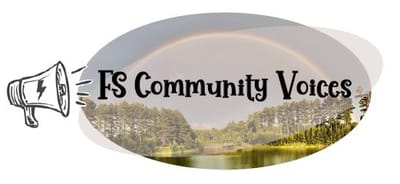
FEATURE

The use of homeowners' association reserve funds is a topic of much confusion and controversy within homeowners' associations.
Because of the importance of maintaining proper levels of homeowners' association reserve funds, they are afforded protections by state laws and/or an association’s governing documents and HOA board members and management personnel should be familiar with all requirements that are imposed on the use of reserve funds before making decisions relative to their use.
What are reserve funds?
It is critical to understand that an association’s reserve funds are not to be used for the payment of normal recurring operating expenses of the association.
Reserve funds are funds that are set aside in a separate account (reserve account) that is established as a source of funds that are available for specific purposes of repair, restoration, replacement, or maintenance of major components that are part of the common areas that the association is responsible for.
Examples of the proper purposes for the use of reserve funds include: (i) the replacement of common area roofs; (ii) the replacement of wood siding on common area building exteriors; (iii) repaving of community roads; (iv) painting or remodeling community facilities such as a clubhouse.
The restrictions imposed by state laws and/or governing documents may also permit the use of an association’s reserve funds for funding litigation that involves the repair, restoration, replacement, or maintenance of such components (i.e. construction defect litigation). To maintain the separate identity of the reserve funds, an association needs to maintain one or more separate bank accounts for the holding of reserve funds and the reserve funds should never be commingled with an association’s operating funds.
Furthermore, it is common for state laws and/or governing documents to limit those who are authorized to withdraw reserve funds from the accounts to board members and/or officers of the association. Thus, retained management personnel should never be authorized to withdraw funds from an association’s reserve bank account.
Where do the reserve funds come from?
The source of the funds that go into an association’s reserve account is the dues and assessments that are periodically (usually monthly or quarterly) paid by the association’s members. Associations that are relatively new, and under the control of a developer, may also require contributions to the reserve fund from the developer for lots, homes, or units that have not yet been sold.
A specific portion of each payment made for dues and assessments is allocated for contribution to the association’s reserve account. The remaining portion is for payment of ongoing operating expenses.
Determining how much to set aside for reserve funds.
A determination of how much money should be allocated to an association’s reserve fund requires the creation and periodic updating of a reserve study.
Because the preparation of a reserve study requires knowledge and expertise that is beyond the capacity of the typical board member or management person, associations should retain outside third-party vendors who are in the business of preparing association reserve studies. The preparation of the reserve study necessitates the identification of virtually all components that exist within the physical properties of the association’s common areas and an assessment of the useful life of each such component and the cost of maintaining and replacing it.
A properly prepared reserve study will enable an association’s board of directors to know exactly what components must be properly maintained and periodically repaired and/or replaced.
The reserve study will also specify the amount of funds that should be allocated to each such component for maintenance, repairs, and replacements.
With this information, the association’s board of directors can determine the amount that should be on hand in the reserve account and how much additional funds should be contributed on a regular basis out of the dues and assessments paid by the members.
Because the preparation of a reserve study is based on estimates made by the preparer of the study, it is not an exact science. The association’s physical components can fail sooner, or last longer, than anticipated and maintenance, repair, and/or replacement costs can be more or less than had been estimated. To accommodate for such variations, it is common for association boards to make periodic adjustments to the various line items contained within their reserve study.
With a properly prepared reserve study, an association can create a meaningful and accurate annual budget for circulation to the association members that should provide for payment of the normal operating funds of the association and the additional funds that will periodically be required to repair, restore, replace, or maintain common area components.
What if we don’t have the reserve funds that are required by a reserve study?
It is common for homeowners' associations to be underfunded in their reserves. This typically occurs because accurate reserve studies were never prepared and/or the required regular contributions were not made to maintain the appropriate level of available funds in the reserve account.
The reasons insufficient amounts are collected vary but frequent underfunding results from shortsighted thinking on the part of the association directors who, in an effort to avoid an increase in dues or assessments, decide to cut costs and forego required maintenance, repairs or replacements.
Association boards should have a realistic plan for the funding of the association’s reserves.
Decisions to avoid necessary maintenance, repairs and/or replacements should not be a consideration. Instead, HOA boards should take immediate action to increase dues and/or levy special assessments in amounts that are sufficient to build the level of reserves to appropriate levels that will provide for funds that are needed for proper maintenance of the association’s common areas.
Use of reserve funds for unauthorized purposes.
In the real world there are unexpected occurrences that result in expenses that were not anticipated and, as a result, associations can experience cash flow shortages. As a result, they may lack sufficient funds on hand in their operating accounts that are required for the payment of operating expenses.
When confronted with such shortages, state laws and/or governing documents typically allow for the temporary borrowing of funds from the association’s reserve account. If it becomes necessary to borrow reserve funds, the board members who make the decision to borrow the reserve funds must be aware of the borrowing restrictions and requirements that must be complied with before the funds may be utilized.
For example, in California, before boards can borrow reserve funds, they must provide notice to the association members of their intent to borrow as an agenda item for a board meeting. The notice of the meeting must include a statement of the reason that the desired transfer of funds from the reserve account is needed along with a stated method of repayment and an indication of whether a special assessment will be considered to generate the funds required to pay back the reserve account.
If, when acting on the agenda item at the board meeting, the board of directors authorizes the borrowing from the reserve fund, it must then make a written finding that is documented in the minutes of the meeting which includes the reasons for the borrowing / transfer from the reserve account and a description of when and how the borrowed funds will be repaid to the reserve account.
Conclusion: Homeowners' association directors have legal, contractual, and fiduciary responsibilities that require the proper handling of association funds. The importance of being aware of all state laws and requirements imposed by an association’s governing documents relative to the maintenance and use of reserve funds cannot be overstated. The proper allocation and use of reserve funds will ensure that the homeowner's association has necessary funds available when needed and will facilitate the association’s operations while at the same time minimizing conflicts within the association that frequently result from the improper conduct relative to the collection and use of reserve funds.
SOCIAL MEDIA

We are the FS Community Voices social media administrative group. We are responsible for managing the Community’s presence on Facebook. Our objective is to facilitate an interactive and informative platform that is respectful and inclusive of all Four Seasons homeowners.
Additionally, the team will curate and share relevant content, such as community updates, events, important announcements, and resources, to keep homeowners informed and engaged, while promoting a sense of community.
Abby Mittelmann
Dave Green
Maggy Green
Visit our new Facebook Page
Click Facebook.com
Login Facebook and Then Search FS COMMUNITY VOICES
Then Join
FILE MANAGER
Nov 2025 Residents -Only Town Hall Meeting
Resident-only Town Hall Meeting PowerPoint Presention
2025 Annual Meeting General Questions
QUESTIONS FOR ANNUAL TOWN HALL MEETING
2025 Annual Meeting Finance Questions
Budget/Reserve Study – Finance Questions
2025 Annual Meeting Infrastructure
Reserve Study – Infrastructure Assessment questions
Dec 2024 Residents -Only Town Hall Meeting
Resident-only Town Hall Meeting PowerPoint Presention
USEFUL LINKS

(note: click on the Titles to open links)
Difference between a POA, HOA and COA
South Carolina HOA Laws and Resources
South Carolina Dept of Consumer Affairs
SC Code of Laws - South Carolina Homeowners Association Act
Contributors:
Diane and Steve Wright
ARTICLES
HURRICANE GUIDE
CLICK HERE
*****************************
4/9/2024

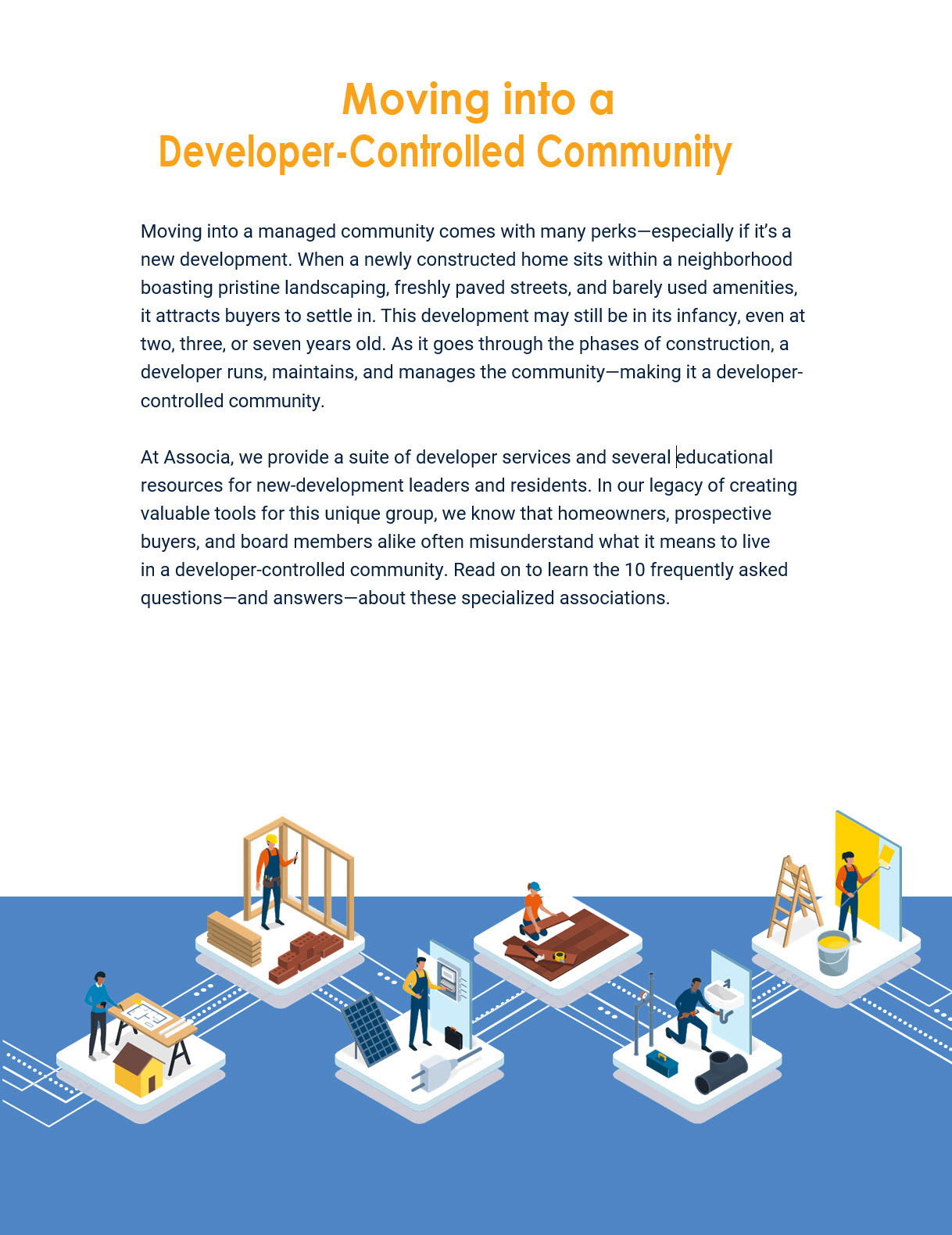
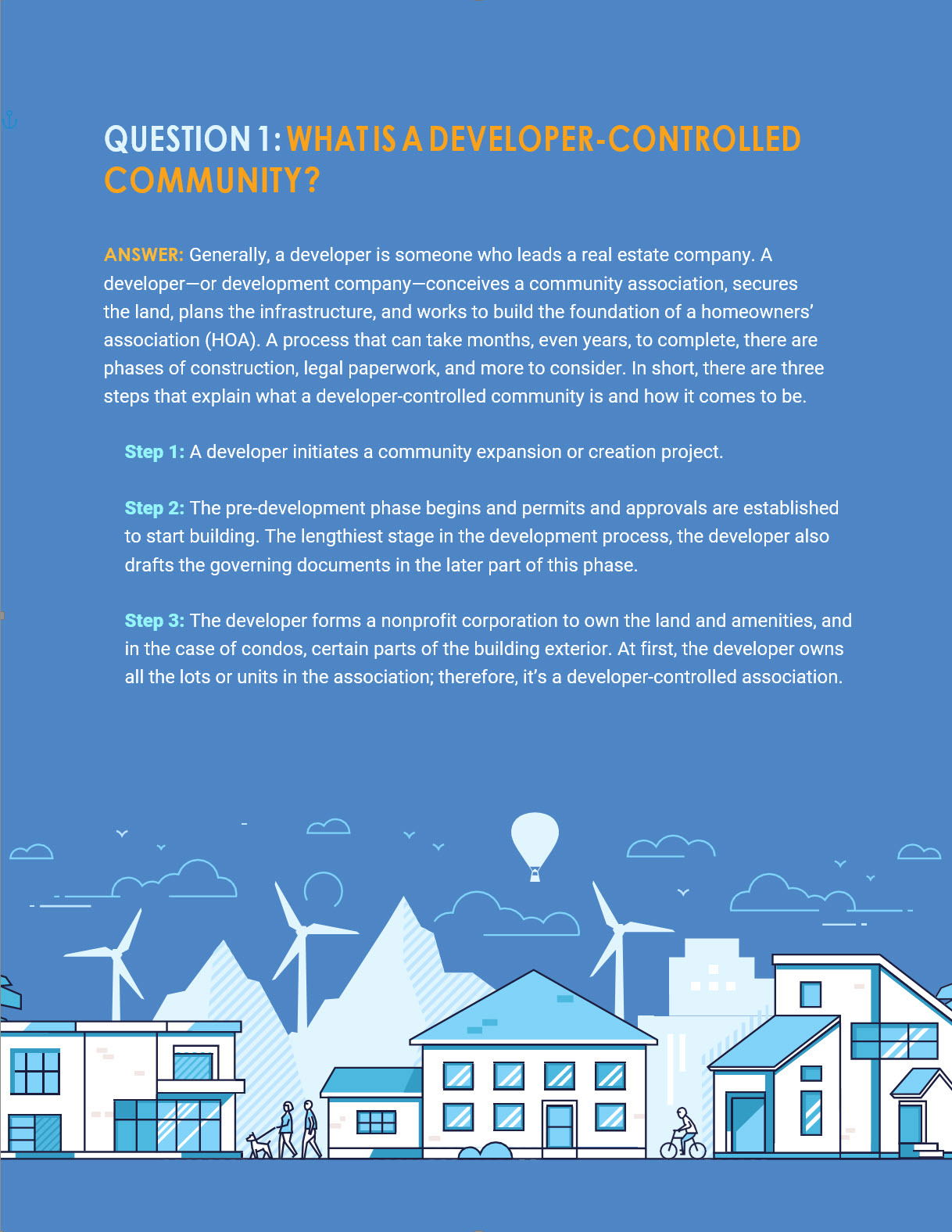
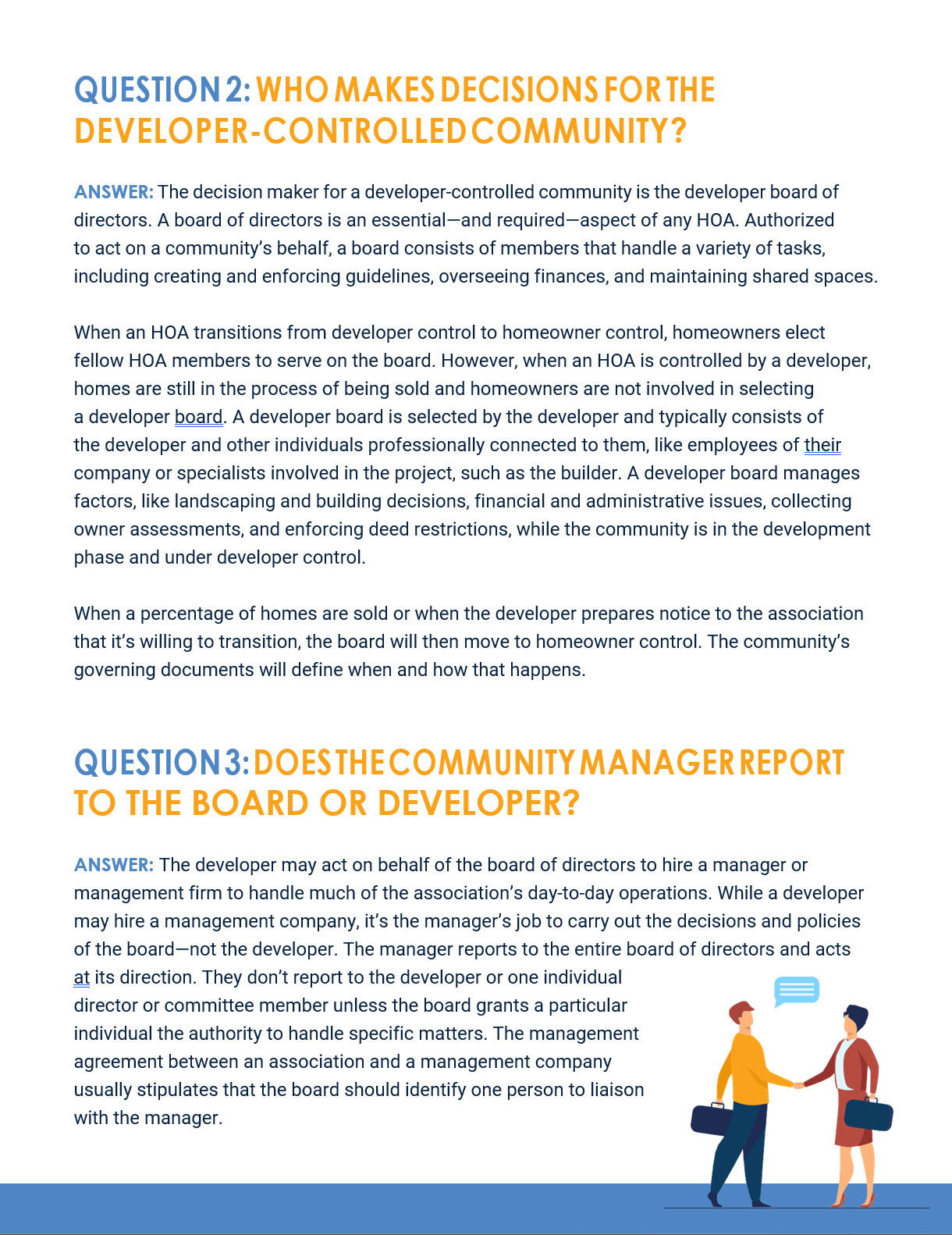
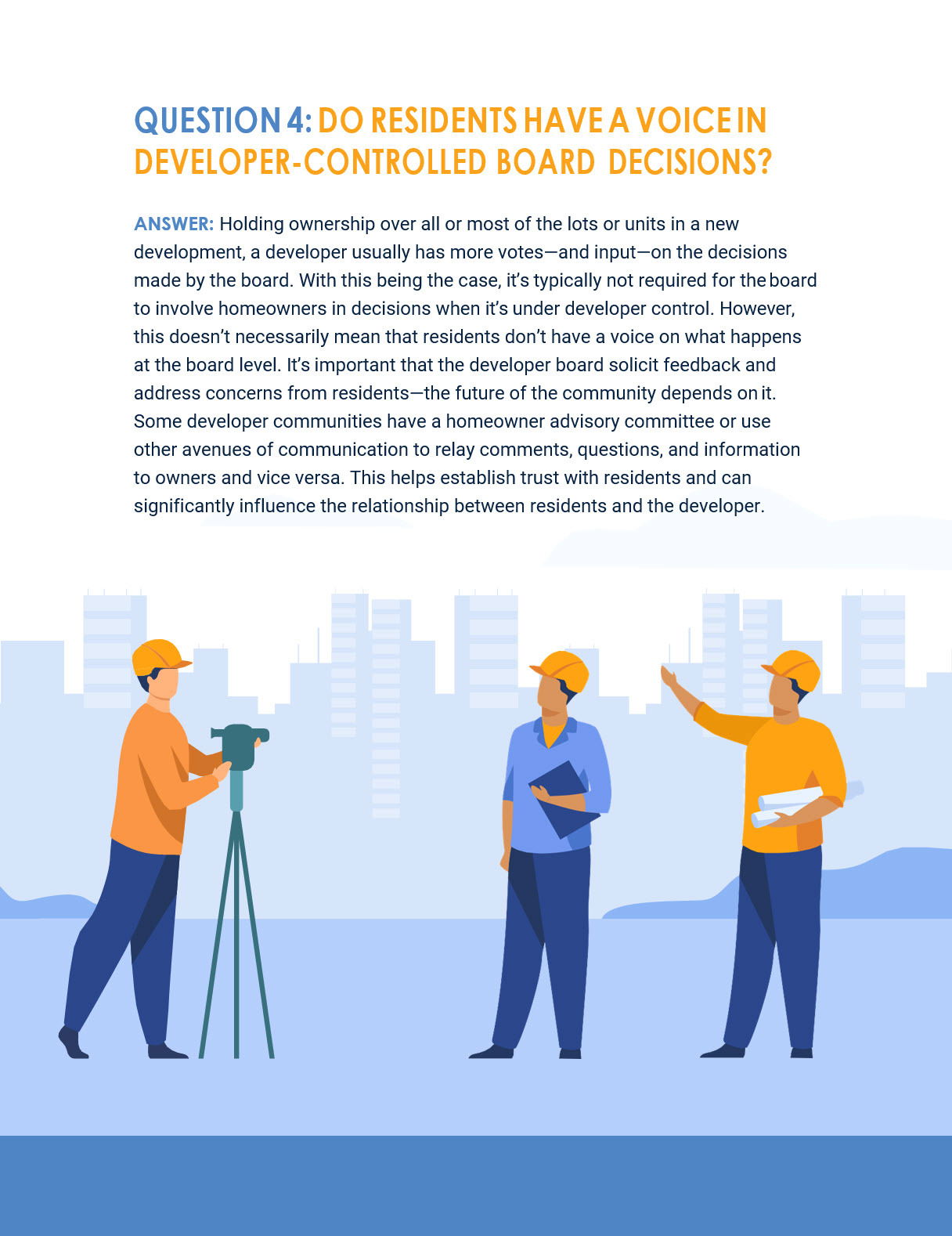
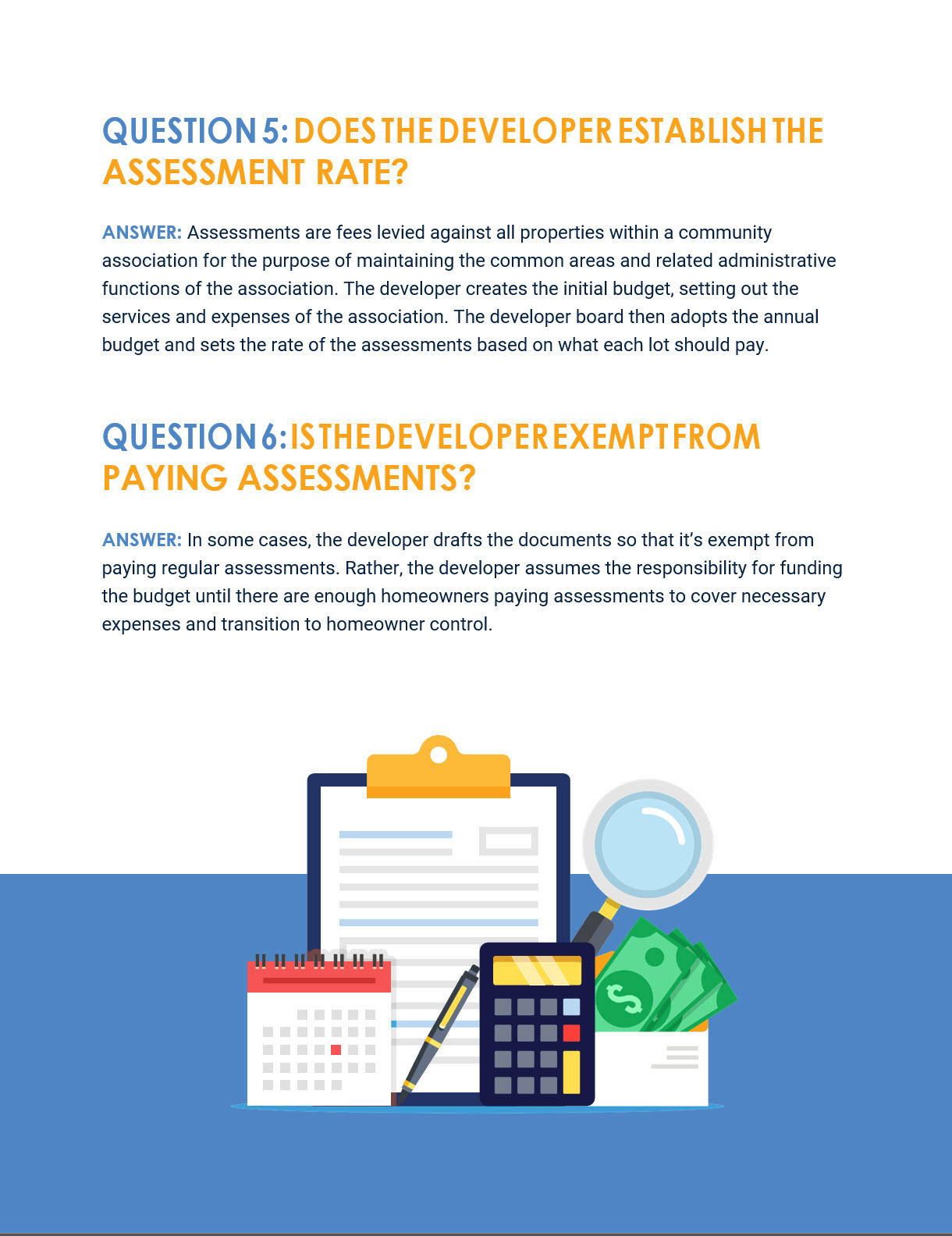
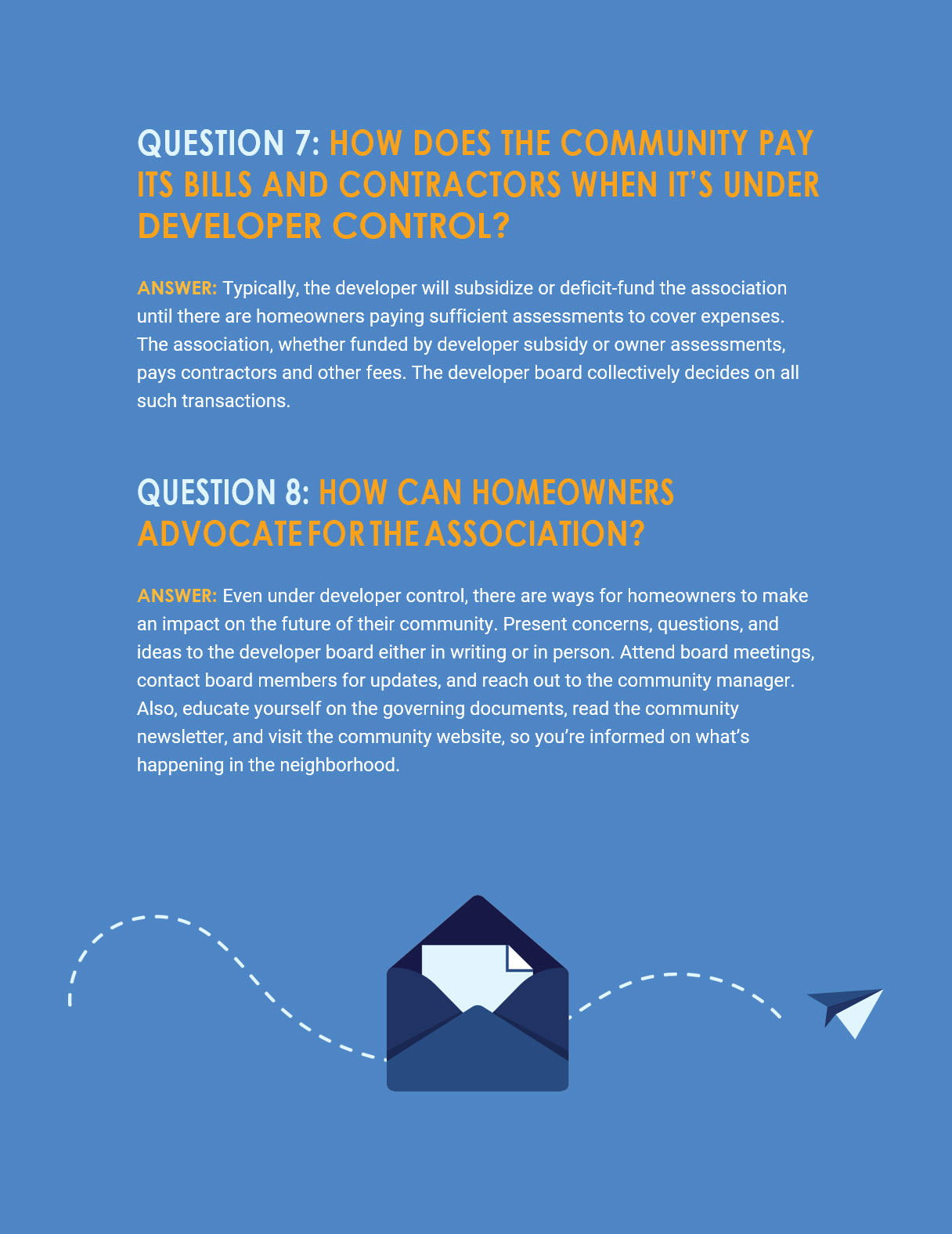
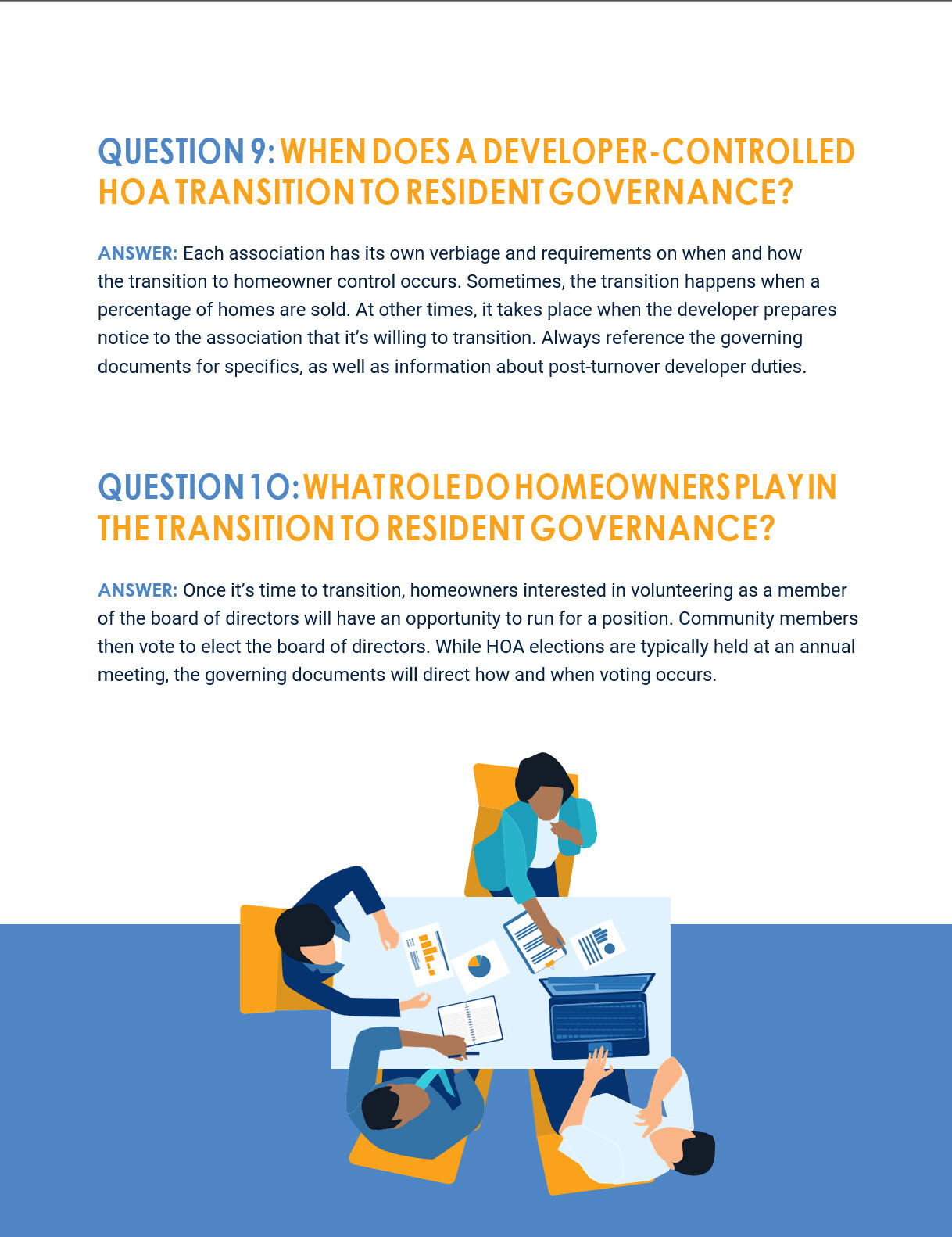
Note from the WEBMASTER:
Information under the header Latest Announcement will be move to the appropriate content header or remove after a few weeks.
CLICK HERE
*****************************
4/9/2024








Note from the WEBMASTER:
Information under the header Latest Announcement will be move to the appropriate content header or remove after a few weeks.

COMMENTS from our RESIDENTS
Contact
- Summerville, South Carolina, United States
- +1-843-608-9411 - IATeam Community Hotline
- FScommunityvoices@gmail.com
- Mon-Fri - 08:00-19:00
